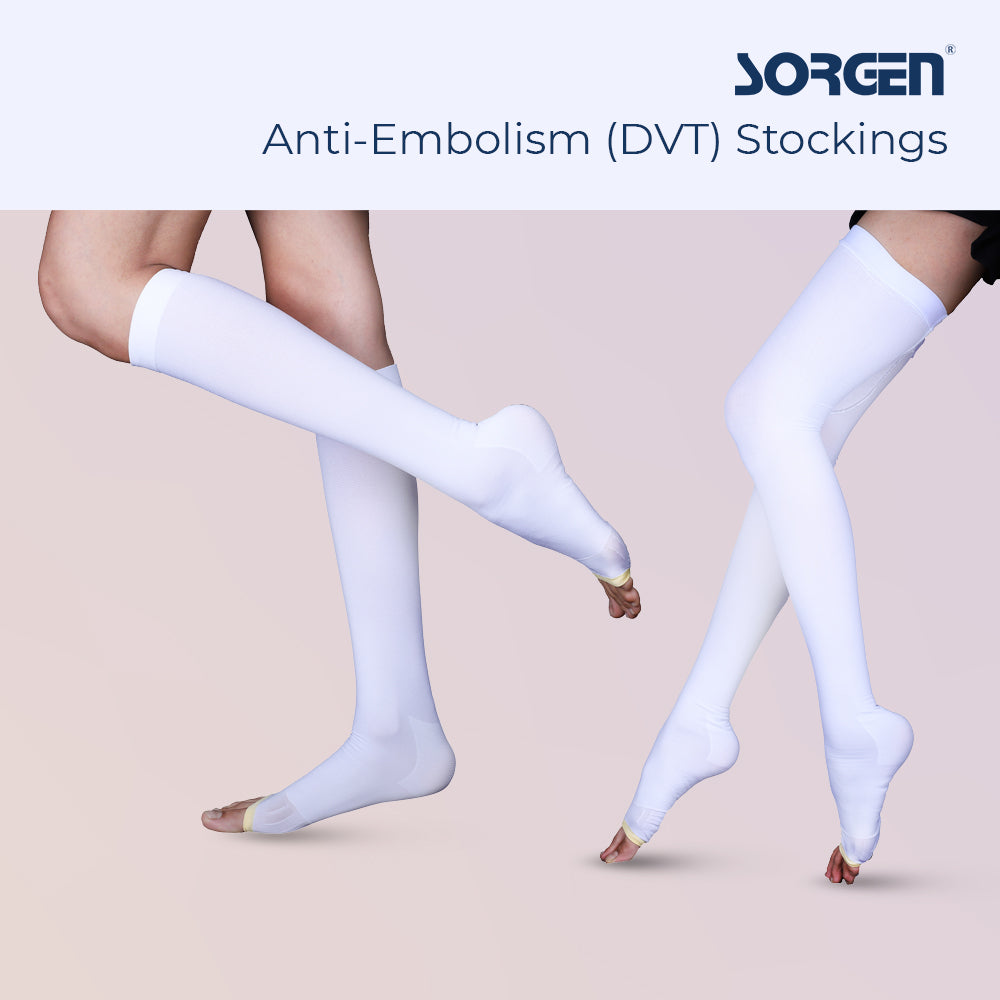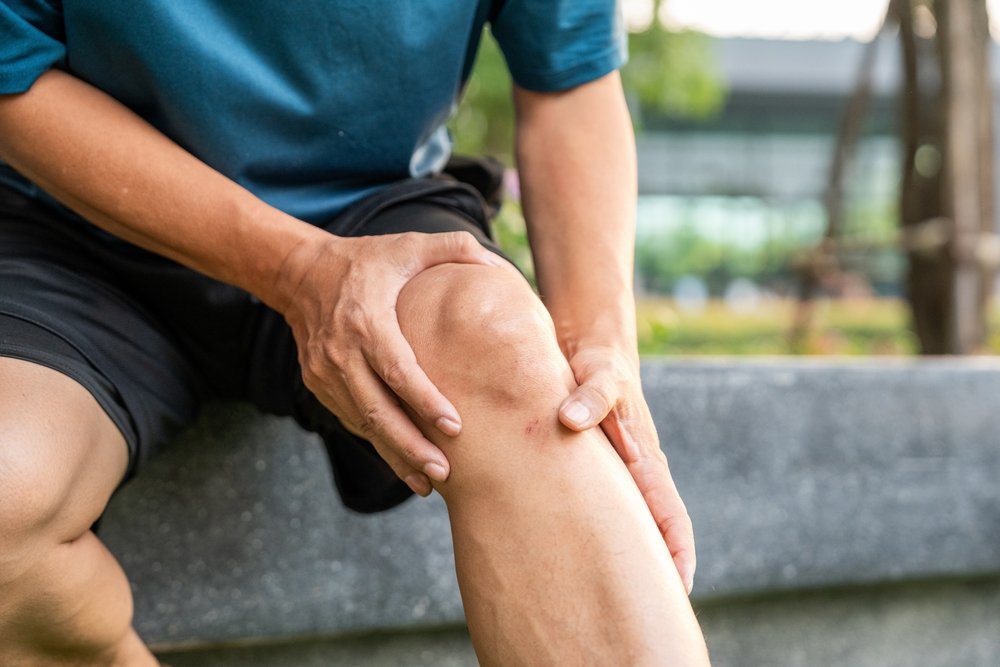No one wants to think about getting a blood clot, but it can happen. One way to help reduce your risk of developing a blood clot is by wearing anti-embolism stockings. But how do they work? And are they worth the hassle? Keep reading to find out more!
Deep vein thrombosis (DVT) occurs when a blood clot forms in one of the deep veins of your body, usually in your legs. DVT can cause pain and swelling in the affected area. If the blood clot breaks loose, it can travel through your bloodstream and block an artery in your lungs, causing a pulmonary embolism (PE). A PE can be life-threatening. DVT is a serious condition, but it can be treated. With early diagnosis and treatment, most people with DVT recover entirely.
DVT occurs when a blood clot forms in a deep vein, usually in your leg. Your leg may feel warm, swollen, and painful. You may also have cramping in your calf or thigh. The skin over the clot may be red or discolored. If you have these symptoms, call your doctor right away.
DVT is often caused by sitting still for long periods, such as during a long plane ride or car trip. Other risk factors for DVT include obesity, smoking, cancer, certain medications (such as birth control pills), and surgery. DVT can also occur after an injury to a vein.
The good news is that there are several treatment options available for DVT. Anti-embolism stockings are often used to prevent clots from forming in the first place. Suppose a clot has already formed, however. In that case, oral Antiplatelet medications or anticoagulants may be prescribed to help prevent it from getting more significant. Sometimes, a filter may also be placed in the veins to catch any clots that break loose. With early diagnosis and treatment, most people with DVT recover fully.
1. What are DVT stockings, and what do they do?
Anti- hose stockings, also known as DVT stockings, are compression garments worn to help prevent the formation of blood clots. By applying gentle pressure to the legs, DVT stockings help to improve blood flow and reduce the risk of clotting. They are often prescribed for people who are immobilized or have restricted mobility and those at increased risk for clotting due to health conditions such as diabetes or heart disease. While DVT stockings can be uncomfortable to wear, they can significantly reduce the risk of severe complications from blood clots.
2. How do they work to prevent blood clots from forming in the legs and lungs?
They work by applying graduated pressure to the legs, which helps to improve circulation and prevent the pooling of blood in the veins. In addition, the compression helps to reduce swelling and discomfort. Anti-embolism socks are typically worn after surgery or during periods of extended bed rest. They are usually not required for everyday activities such as walking or standing. However, your doctor may recommend wearing them if you have certain medical conditions that increase your risk of blood clots. Wearing anti-embolism stockings can help to reduce your risk of developing DVT or other serious complications.
However, compression stockings can also offer many other benefits. For example, they can help to relieve swelling and discomfort in the legs and improve circulation. They may also benefit people who have to sit or stand for long periods, such as office workers or airline passengers. In addition, Medical compression stockings are often used after surgery to help reduce swelling and promote healing. As you can see, there are many reasons someone might choose to wear compression stockings. Whether you're at risk of DVT or simply looking for a way to improve your leg health, they may be worth considering.
3. Who should wear them and how long each day/week/month/year?
They are often recommended for immobile people, such as those who are bedridden or confined to a wheelchair. Anti-embolism stockings come in different sizes, depending on the measurements of the person's leg. They should be snug, but not so tight that they cause discomfort. It is essential to consult with a healthcare professional to determine the correct size and fit for stocking. Anti-embolism stockings should be worn for at least 12 hours per day and can be worn for 24 hours if necessary. They should be removed when bathing or engaging in activities that require leg movement. For people at high risk for blood clots, anti-embolism stockings may need to be worn indefinitely.
4. What are the risks associated with not wearing DVT stockings when prescribed by a doctor?
While DVT stockings are generally safe and effective, there are some risks associated with not wearing them as prescribed by a doctor:
- The compression gradient of the stocking may not be ideal for all patients, which could increase the risk of clot formation.
- If the stocking is not snugly fitted, it may slide down the leg and provide little or no benefits.
- DVT stockings can cause skin irritation or even ulceration if they are worn for too long without first being adequately moistened.
For these reasons, following your doctor's instructions when wearing DVT stockings is essential.
5. How to wear the anti DVT stockings
Wearing anti-DVT socks or stockings is one of the best ways to prevent DVT. They are significant for immobile people or with limited mobility. When putting on compression stockings, it's essential to start at the foot and work your way up the leg. The stockings should be snug but not constricting, and you should avoid bunching them up. Please consult your doctor or pharmacist if you have any questions about adequately wearing compression stockings.
Conclusion
www.Sorgen.co is the best place to buy anti-DVT stockings. They offer various stockings to fit your needs, including knee-high and thigh-high styles. https://sorgen.co/ also offers a variety of sizes to choose from, so you can find the perfect pair of stockings to match your outfit. In addition, www.Sorgen.co offers shipping at a reasonable price so you can save even more money on your purchase. www.Sorgen.co is the best place to buy anti-embolism stockings because they offer the largest selection of stockings at the best prices.


